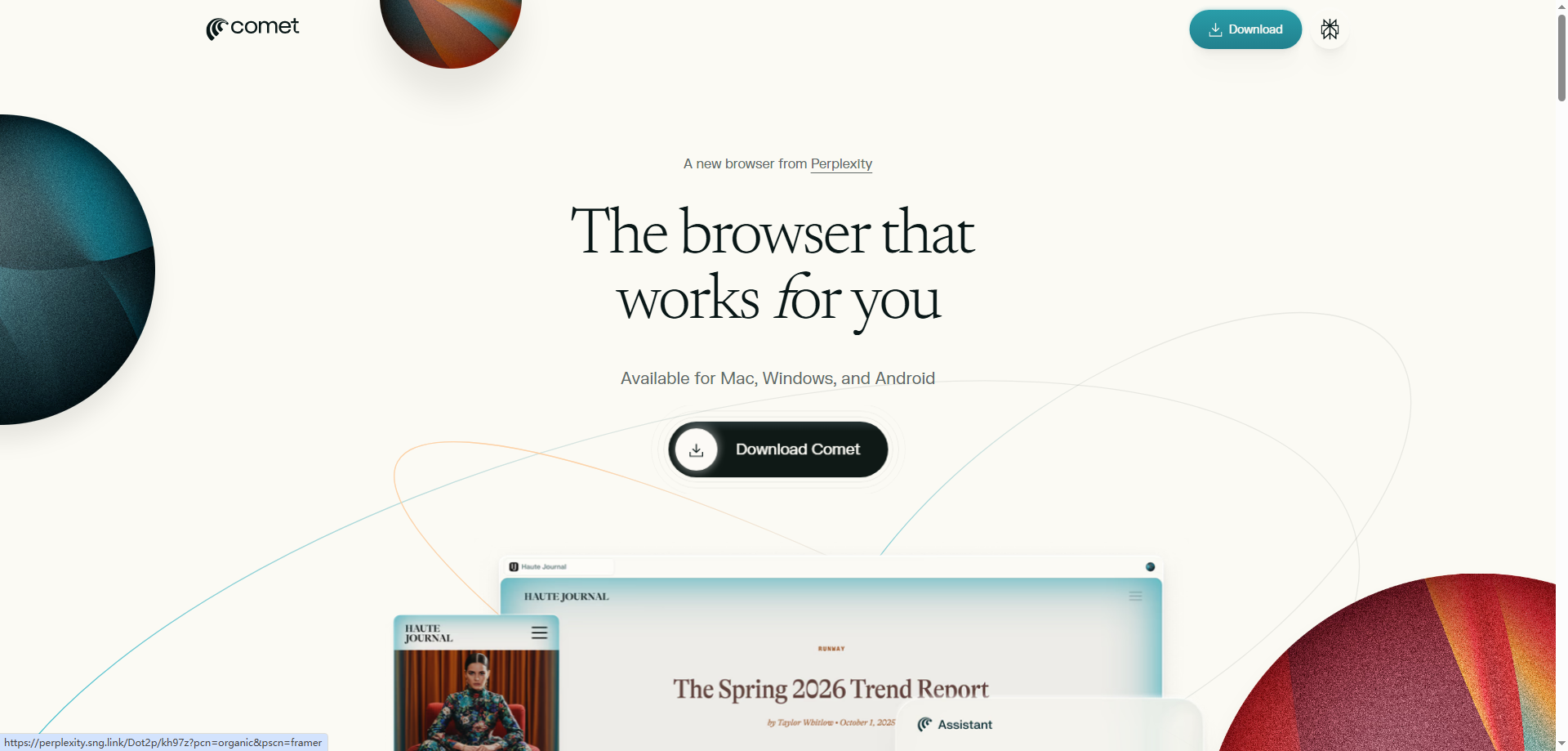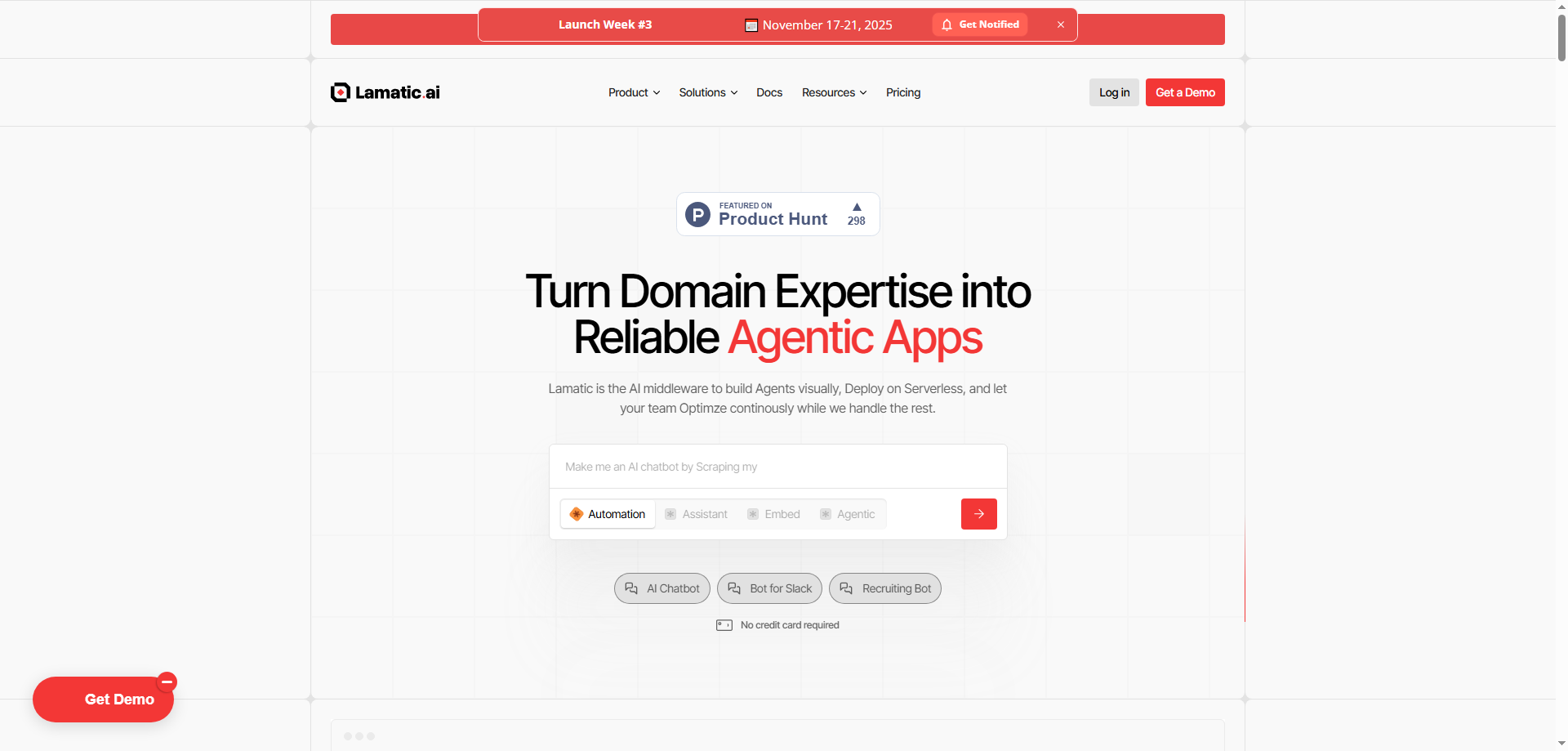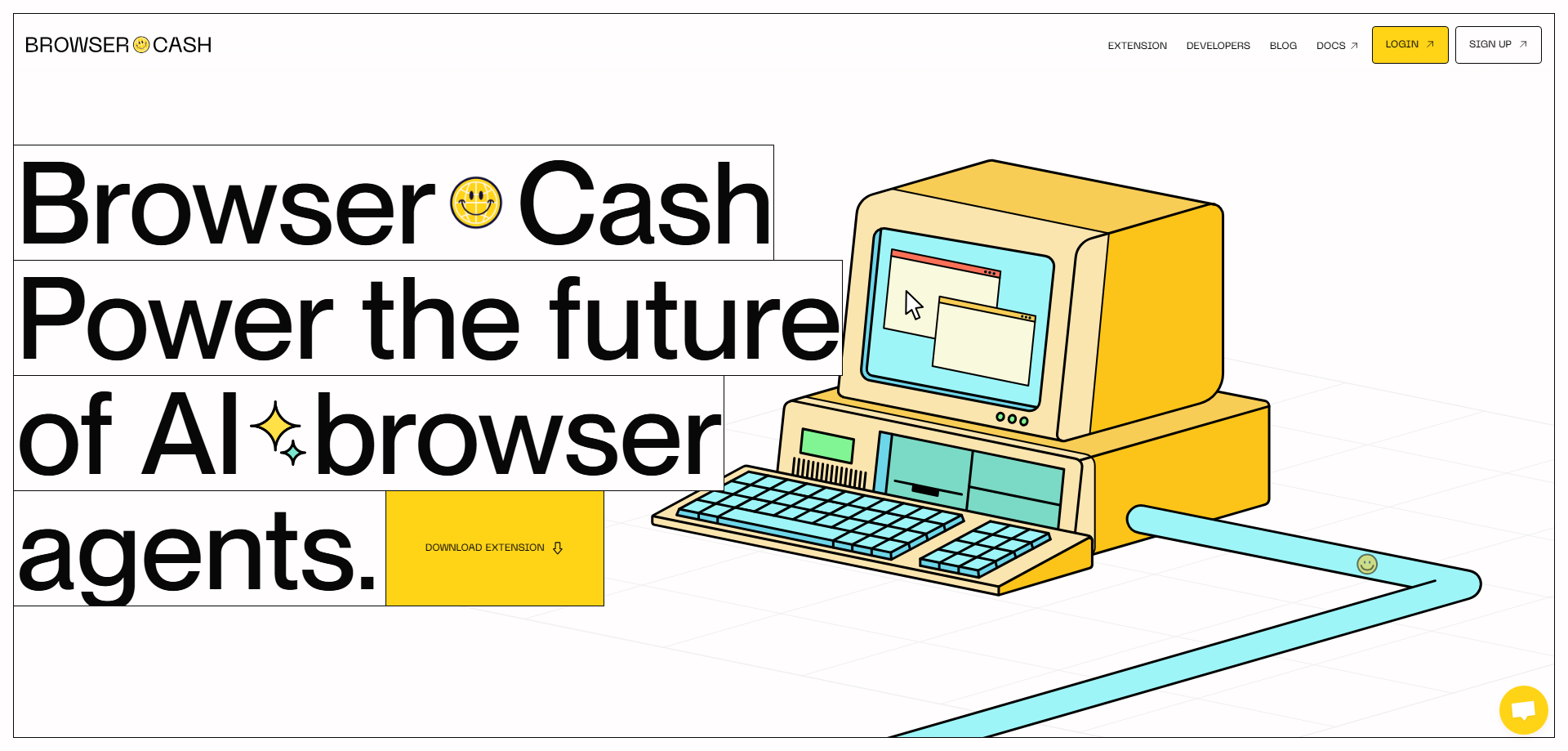I've been watching the AI developer tools space explode over the past year, and honestly, most products feel like solutions searching for problems. But every once in a while, something lands that makes me think "oh, this actually solves the annoying thing I deal with every day." Magic MCP by Metorial is one of those rare finds.
Let me tell you why this enterprise-grade AI integration platform caught my attention, and more importantly, whether it's actually worth your time.
The Creative Breakthrough Nobody Saw Coming
Here's what fascinates me about Magic MCP's approach: they've identified that the real bottleneck in AI-assisted development isn't the AI itself—it's the nightmare of connecting AI to everything else in your workflow.
Think about it. You're using Claude Code or GitHub Copilot to help write code. Great. But then you need that AI to access your Figma designs, pull data from your CRM, push notifications to Slack, read files from Google Drive, and integrate with your project management tools. Suddenly you're spending hours configuring APIs, managing authentication tokens, spinning up servers, and debugging connection issues. The AI becomes more trouble than it's worth.
Magic MCP's creative genius is treating this integration chaos as a platform problem rather than a case-by-case challenge. They've pre-built over 600 MCP integrations—think of them as universal adapters that let AI tools speak the same language as your existing software ecosystem. It's like they've created a massive library of ready-to-use connectors, so you're never starting from scratch.
But here's the really clever part: they've wrapped this in what they call "vibe coding." I know, the term sounds fluffy, but stay with me. The idea is that coding should flow—you shouldn't be constantly context-switching between your IDE, your terminal, your browser tabs, and your configuration files. Magic MCP handles all the plumbing invisibly, so you can stay in your coding groove. Your AI assistant becomes genuinely helpful because it can actually access the tools and data it needs without you manually ferrying information back and forth.
The serverless hosting approach is another stroke of creative problem-solving. Most AI integration platforms either force you to manage your own infrastructure or lock you into their proprietary cloud with zero flexibility. Magic MCP offers true serverless hosting—meaning you don't worry about scaling, maintenance, or uptime—but it's also open source and self-hostable. That's a rare combination. You get enterprise-grade reliability with developer-friendly control.
The one-click OAuth implementation deserves special mention. If you've ever tried to implement OAuth flows for multiple services, you know it's a soul-crushing experience. Different providers have different quirks, inconsistent documentation, and mysterious failure modes. Magic MCP abstracts all that ugliness behind a single click. Your AI can securely access user data across 600+ services without you writing a single line of OAuth code.
What really elevates this from "nice tool" to "creative innovation" is the full observability layer. They're not just connecting things and hoping for the best—they're giving you real-time visibility into every API call, every data flow, every performance metric. This transforms AI integration from a black box into something you can actually monitor, debug, and optimize.
Is Magic MCP Disrupting the Developer Tools Landscape?
Let's talk about disruption. Can Magic MCP actually replace existing tools, or is it just adding complexity to an already crowded space?
My honest assessment: Magic MCP isn't trying to replace your code editor, your AI assistant, or your project management tools. Instead, it's making them all work together in ways that were previously impossible or prohibitively difficult. That's a different kind of disruption—not replacement, but transformation.
Traditional integration platforms like Zapier or Make focus on no-code automation between web apps. They're great for marketing workflows and simple data transfers, but they're not built for real-time AI coding assistance. They can't handle the low-latency, high-throughput demands of an AI assistant that needs to read your codebase, access design files, query databases, and update documentation—all while you're actively coding.
Enterprise integration platforms like MuleSoft or Dell Boomi are powerful but require dedicated integration teams, months of implementation, and enterprise budgets. They're overkill for developer teams who just want their AI coding assistant to work with their existing tools.
Magic MCP occupies this interesting middle ground: enterprise-grade reliability and security, but with developer-friendly simplicity and open-source transparency. You get 600+ pre-built integrations without the enterprise sales process. You get serverless hosting without vendor lock-in. You get comprehensive monitoring without needing a dedicated DevOps team.
Here's where the disruption really happens: Magic MCP fundamentally changes what's possible with AI coding assistants. Right now, tools like Cursor, Claude Code, and GitHub Copilot are mostly isolated—they can read and write code, but they can't deeply integrate with your entire development ecosystem. With Magic MCP, suddenly your AI assistant can pull requirements from Jira, reference designs from Figma, check documentation from Notion, validate against test data from your database, and push updates to your team's Slack channel—all without you manually moving information between systems.
This transforms AI assistants from "fancy autocomplete" to "collaborative team member with full context." That's genuinely disruptive because it changes the fundamental value proposition of AI coding tools.
Could Magic MCP completely kill traditional integration platforms? Not for non-technical users who need simple app-to-app automation. But for developer teams building AI-powered workflows? Yeah, this could easily become the default choice. The combination of developer-friendly setup, enterprise-grade performance, and AI-specific optimizations is hard to beat.
The real test will be whether Magic MCP can maintain its integration breadth as APIs evolve. 600+ integrations is impressive, but maintaining them as third-party services update their APIs is a massive ongoing challenge. If they can keep those integrations current and reliable, they've got a real moat.
Will Developers Actually Use This Thing?
Now let's get practical. Who needs Magic MCP, and will they actually adopt it?
The immediate market is crystal clear: development teams already using AI coding assistants who are frustrated by the integration friction. I'm talking about startups building AI-powered products, scale-ups modernizing their development workflows, and forward-thinking teams at larger companies who've been given permission to experiment with AI tools.
These teams share a common pain point: they've adopted Cursor, Claude Code, or GitHub Copilot and seen productivity gains, but they've hit a ceiling. Their AI assistant is helpful within the narrow confines of code generation, but it can't access the broader context that would make it truly powerful. Magic MCP removes that ceiling.
The adoption curve depends heavily on how painful the integration problem is for your team. If you're a solo developer working on small projects, you probably don't need 600 integrations. But if you're on a team of five or more, working across multiple tools and platforms, constantly context-switching between systems? Magic MCP starts looking essential pretty quickly.
I see three adoption pathways:
Fast adopters: Teams already feeling integration pain, technical enough to appreciate the value, and willing to experiment. These folks will try Magic MCP immediately and become advocates if it works as advertised.
Wait-and-see majority: Teams aware of AI coding tools but not yet feeling urgent integration pain. They'll adopt once they see clear case studies and ROI evidence from early adopters.
Late adopters: Larger organizations with established integration patterns who'll only switch when there's overwhelming competitive pressure or clear cost savings.
The pricing model will be critical here. If Magic MCP positions as enterprise software with enterprise pricing, they'll only capture the first group. But if they offer accessible tiers for small teams and startups—possibly a freemium model with generous limits—they could capture all three groups sequentially.
One major adoption accelerator: the open-source, self-hostable nature. Developer teams are increasingly allergic to vendor lock-in and opaque closed-source platforms. The fact that you can inspect the code, run it on your own infrastructure, and customize it to your needs dramatically lowers the trust barrier. Security-conscious teams who'd never send their code to a third-party service might happily self-host Magic MCP behind their firewall.
The biggest adoption barrier isn't technical—it's organizational inertia. Many companies have existing integration patterns, even if they're clunky. Switching to Magic MCP requires convincing multiple stakeholders that the productivity gains justify the migration effort. That's a tough sell unless the pain is acute or the champion is influential.
My prediction: we'll see rapid adoption among AI-native startups and experimental teams at tech companies, slower adoption at traditional enterprises, and eventually mainstream acceptance as AI coding becomes table stakes for competitive development teams.
Survival Rating: Can Magic MCP Last the Year?
Alright, the tough question: will Magic MCP still be here twelve months from now? Let me break this down systematically.
My Rating: ⭐⭐⭐⭐ (4 out of 5 stars)
Why I'm Bullish: The Opportunities
Perfect Timing: AI coding assistants are exploding in popularity. GitHub Copilot has millions of users. Cursor raised massive funding at a billion-dollar valuation. Claude Code just launched to huge developer interest. Every major tech company is building AI developer tools. Magic MCP is positioned right in the path of this tsunami of adoption.
Real Pain Point: Integration friction is a genuine, growing problem. As teams adopt more AI tools and those tools try to do more ambitious things, the integration challenge compounds. Magic MCP isn't solving a hypothetical problem—it's addressing daily frustration for thousands of development teams.
Technical Moat: Building and maintaining 600+ integrations is hard. It requires deep API knowledge, constant maintenance as services evolve, robust error handling, and comprehensive testing. That's not something a weekend project can replicate. Magic MCP has built real defensibility.
Open Source Strategy: Making the platform open source and self-hostable is brilliant strategy. It builds trust, attracts contributors, creates community momentum, and enables enterprise adoption without triggering security concerns. This could create a flywheel effect where community contributions expand the integration ecosystem faster than any closed-source competitor could match.
Enterprise-Ready Architecture: True serverless hosting, comprehensive observability, and one-click OAuth aren't features you throw together—they're the result of serious engineering. This positions Magic MCP to handle enterprise-scale deployments, which means bigger contracts and more stable revenue.
Why Not Five Stars: The Real Risks
Integration Maintenance Hell: Here's the existential threat: maintaining 600+ integrations as third-party APIs evolve is brutally difficult. One API breaking change can cascade through your platform. If Magic MCP can't keep integrations reliable and current, their entire value proposition collapses. This is a treadmill they can never get off.
Platform Dependency: Magic MCP's success is tied to the continued relevance of specific AI coding assistants—particularly Cursor, Claude Code, and GitHub Copilot. If one of these tools pivots, gets acquired, or becomes less popular, Magic MCP loses a use case. If AI assistants themselves get disrupted by a new paradigm, Magic MCP's whole category might evaporate.
Competitive Threats from Giants: Microsoft owns GitHub and GitHub Copilot. They could easily build native integration capabilities that make third-party platforms like Magic MCP unnecessary. Google, Amazon, and other cloud providers could do the same. If the AI assistant vendors vertically integrate, Magic MCP gets squeezed out.
Monetization Challenges: Open source is great for adoption but tricky for monetization. How does Magic MCP convert free users to paying customers? Hosted service fees? Premium integrations? Enterprise support? If they can't crack the business model, funding runs out and the project stalls.
Market Education Burden: Most developers haven't yet internalized that AI integration is a distinct challenge requiring specialized tools. Magic MCP needs to educate the market, define the category, and position themselves as the leader—all expensive, slow activities that startups often underestimate.
API Rate Limits and Costs: Running thousands of API calls across 600+ services incurs real costs—both in API fees and in infrastructure. If Magic MCP's usage grows faster than revenue, unit economics could become problematic. They need pricing that covers costs while remaining attractive to customers.
What Would Get Them to Five Stars
If Magic MCP can secure strategic partnerships with Cursor, Claude Code, or GitHub as official integration partners, that would dramatically reduce platform risk and accelerate market education. If they can prove clear ROI with case studies showing X hours saved per developer per week, adoption would accelerate. And if they can build a sustainable business model that funds ongoing integration maintenance while keeping the core product accessible, they'd be nearly unstoppable.
The other five-star path: become the industry standard. If Magic MCP becomes the de facto way to integrate AI coding tools with real-world services—the way React became the standard for UI components—they'd be incredibly difficult to displace regardless of competitive pressure.
My Honest Take
I'm genuinely impressed by Magic MCP. The team has identified a real problem, built a sophisticated solution, and positioned themselves smartly in a rapidly growing market. The technical execution looks solid, the open-source strategy is smart, and the 600+ integrations represent real value that's hard to replicate quickly.
The "vibe coding" concept resonates with me because it captures something important: development productivity isn't just about writing code faster, it's about staying in flow state and not getting yanked out by context switching and integration friction. Magic MCP promises to remove those interruptions, and if they deliver on that promise, developers will love it.
But I'm keeping my rating at four stars because the risks are real. Maintaining 600+ integrations is a Sisyphean task. Dependence on specific AI platforms creates vulnerability. Competition from well-funded giants is inevitable. And monetizing open-source infrastructure is notoriously difficult.
If I were advising the Magic MCP team, I'd say: focus obsessively on integration reliability, build defensible relationships with the major AI coding platforms, prove ROI with compelling case studies, and nail the business model before competitors crowd the space. The opportunity is enormous, but the execution challenges are significant.
For developer teams considering Magic MCP: if you're already using AI coding assistants and feeling integration pain, this is absolutely worth trying. The open-source nature means low risk, and if it works, the productivity gains could be substantial. Just be aware you're adopting an early-stage platform that's still proving itself.
Four stars. High potential. Significant execution risk. Worth watching closely.









